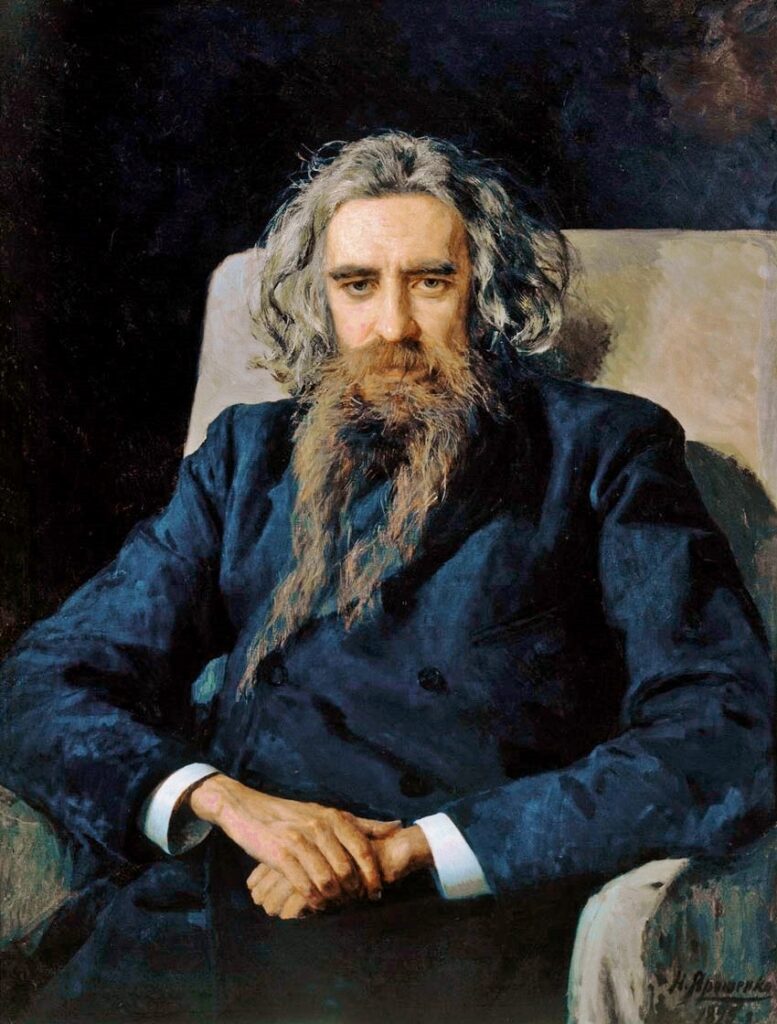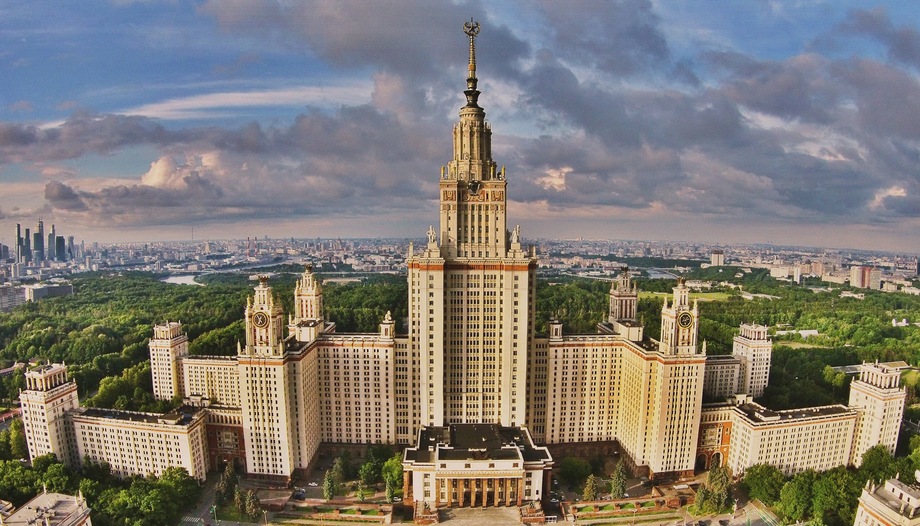Vladimir Sergeyevich Solovyov was born in Moscow in 1853. His father was the famous historian Sergey Solovyov (born and died in Moscow in 1820-1879), professor of history at Moscow University, who published several works including his masterpiece "History of Ancient Times" (1851-1880).

With his work "Crisis of Western Philosophy" (Moscow 1874), he had initiated a struggle against positivism, then thriving in Europe and that was beginning to penetrate in Russia. In 1875 she brilliantly completed her studies in philosophy and devoted herself to teaching in Moscow from the age of 22 until 1880 when she moved to St. Petersburg to devote herself to teaching at the University of the city and to work at the Higher Institute for the education of women.
For his thoughtful ideas against Pan-Slavism and for his appreciation of Russian and Western values, he was in fact ostracized in the academic sphere. Between 1875 and 1876 he traveled to England, where he became acquainted with Cardinal Newman's efforts to unite the Anglican and Catholic Churches, to France, Italy and Egypt, where he studied Indian philosophy.
In 1881 he died Dostoevsky and Solovyov is one of the friends who carries the novelist's coffin on his shoulders. In that year the tsar was assassinated and 14 days later Solovyov asked for the pardon of the assassins from the death penalty to which they had been condemned. The Slavophiles succeeded in having him banned from speaking in public and deprived of teaching for having publicly defended the need to abolish capital punishment. He says about the death penalty that by applying it society declares that the offender is guilty in the past, wicked in the present and incorrigible in the future. But society cannot pronounce absolutely on the incorrigibility of the offender in the future.
Soloviov and harmony
An admirer of the Jewish people, at the age of thirty he began his study of the Hebrew language and years later initiated several campaigns against anti-Semitism. For Solovyov no people should live in itself, by itself or for itself, because the life of each people is a participation in the general life of humanity. In the division and isolation of human nuclei Solovyov finds the origin of all evils. The true social good is solidarity, justice and universal peace.
There is a threefold violation of this harmony: when one nation infringes upon the existence or freedom of another; when one social class oppresses another; and when the individual goes against the State or the State oppresses the individual. The true formula of justice is this: each particular being, individual or nation, must always have for himself a place in the universal organism of humanity.
From then on he lived in retirement, studying, writing and doing charitable works until 1900, the year of his death. He studied Church History and Theology, wrote "The Spiritual Foundations of Life" (1882-1884) and "The Dogmatic Evolution of the Church in Relation to the Question of the Union of the Churches" (1886).
In addition to being a philosopher Solovyov was a great poet of accentuated lyricism and, although his poetry is profound, some of his compositions are popular in Russia ("Morning Fog", "Resurrection", "O beloved"). In one of them, "Ex Oriente lux", he addresses Russia to ask: "Tell me, do you want to be Xerxes' East or Christ's East?".
The philosophy of Vladimir Sergeyevich Solovyovyevich
Leaving aside his elevated poetic work, among his philosophical works should be considered as the most important: "Philosophical Principles of Unified Knowledge" (1877), "Lessons on the Humanity of God" (1878-81), "Critique of Abstract Principles" (doctoral dissertation in Philosophy, Moscow 1880), "History and Future of Theology" (Agram 1887), "Justification of the Good" (St. Petersburg 1897), "La Russie et l'Eglise Universelle" (Paris 1889 and in Russian St. Petersburg 1912).
Solovyov criticizes abstract philosophies, which are based on a priori thought or ideas, and also empiricism, which merely recognizes the value for knowledge of external phenomena. He affirms that the experience that leads to knowledge is not only the external but also the inner one through which it is possible to reach the absolute and, of course, the personal consciousness.
The object of knowledge can be presented: as that which exists absolutely (Entity) and is known through belief in its absolute existence; as essence or idea (Essence) and is known through speculative contemplation or imagination of such essence or idea; as phenomenon (Act) and is known through its embodiment, actual sensations or empirical data of our sensible natural consciousness.
Apart from Christ, God does not appear to us as a living reality. In Him is founded the common universal religion, says Solovyov. I dare to ask on my own: Have not the other religions, the non-Christian religions, in what they have of actuality and truth, adopted from Christ - without consciously knowing it - that which maintains them for their followers as beliefs that continue to bring comfort, hope and meaning to their lives? As examples of such a question, did not Christ nourish Gandhi and Tolstoy? Does not Christ, in Mother Teresa of Calcutta, continue to reveal himself today to people of different beliefs, including the agnostic ones that they limit themselves to saying that they do not know?
Modesty and the moral law
Solovyov in morality wants to understand man in his tragic situation of freely choosing between the ugliness of evil and the beauty of good. He sees in the feeling of modesty, in its truest meaning, how the moral is experimentally manifested in man. Such a feeling of modesty distinguishes man from all physical nature, not only from that external to him but also from his own, when he is ashamed of his lusts. He summarizes his thought thus: "I have heard the divine voice and have been afraid to appear naked in my animal nature. I am ashamed of my concupiscent nature, then I subsist and exist as a man". In the feeling of modesty the moral law is reflected in one of its manifestations, commanding us to subordinate the passions to the area of reason through asceticism.
Universal Christianity
Solovyov sees the only solution to the problems of Russia and the world in universal Christianity and sees, therefore, the urgency of the union of Christians, which is the way to prepare the unity of the human race. On Christ is founded the universal Church, the common religion of all men. But Christ-God-Man is to be sought not only in the past but also in the present, not only in our personal limitation but also in his social revelation. Hence his advice: take inner comfort in the living God-Man-Christ; recognize his real presence in the universal Church.
Solovyov thought that in the union with the Catholic Church should proceed gradually preparing the environment and remaining orthodox. But foreseeing his approaching end or trying to put his beliefs into practice, on February 18, 1896 he was received into the Universal Church by the Russian Catholic priest Nicolai Alekseevic Tolstoy in the Tolstoy chapel in Moscow dedicated to Our Lady of Lourdes. He died at the estate of Prince Trubetzkoi in Moscow in 1900.








